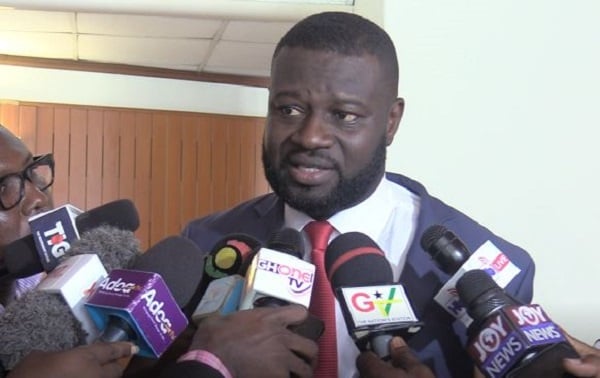The fight against illegal mining, commonly known as “galamsey,” in Ghana has been a persistent struggle, fraught with complexities and setbacks. Mr. Frank Annoh-Dompreh, the Minority Chief Whip in Ghana’s Parliament, has voiced his deep dissatisfaction with the government’s approach to this critical issue. His primary concern stems from the perceived lack of dedicated funding allocated to combat galamsey, despite Parliament’s approval of a substantial 1.8 billion cedis budget for the Ministry of Lands and Natural Resources. Mr. Annoh-Dompreh, who also serves as the Member of Parliament for Nsawam/Adoagyiri, meticulously reviewed the 19-page budget report and found no explicit allocation earmarked for tackling illegal mining activities. This omission, he argues, underscores a lack of seriousness and commitment on the part of the government in addressing this pressing national concern. He has publicly expressed his disturbance and frustration with this apparent oversight, characterizing it as “regrettable” and “totally regrettable,” emphasizing the gravity of the situation.
Mr. Annoh-Dompreh’s criticism highlights a broader concern regarding the effectiveness of the government’s strategies against illegal mining. Despite repeated pronouncements and various initiatives launched over the years, galamsey continues to plague the country, devastating the environment and posing significant threats to water bodies, forests, and livelihoods. The absence of a clear and dedicated funding allocation within the budget, according to the Minority Chief Whip, suggests a lack of prioritization and potentially undermines the efficacy of any planned interventions. The implication is that without a dedicated and well-resourced plan of action, the fight against galamsey will likely remain an uphill battle, with limited prospects for meaningful progress. His insistence on a “definite expression” for the fight against galamsey in the budget reflects the need for transparency and accountability in the allocation and utilization of public funds dedicated to this critical issue.
The concerns raised by Mr. Annoh-Dompreh go beyond mere budgetary allocations; they touch on the broader issue of governmental commitment and the perceived disconnect between pronouncements and actions. While the government has publicly acknowledged the dangers of illegal mining and has periodically launched campaigns and initiatives to combat it, the continued prevalence of galamsey suggests that these efforts have not been sufficiently effective. The absence of a dedicated budgetary allocation could be interpreted as a sign that the government is not giving the issue the attention and resources it deserves, thereby allowing illegal mining operations to continue unabated. This perceived lack of commitment undermines public trust and raises questions about the sincerity of the government’s stated intentions to tackle this destructive practice.
Furthermore, the lack of transparency in the budgetary process, as highlighted by Mr. Annoh-Dompreh’s inability to find a specific allocation for galamsey within the detailed budget report, raises concerns about accountability. Without a clear and transparent allocation of funds, it becomes difficult to track how resources are being used and to assess the effectiveness of government interventions. This lack of transparency also creates an environment conducive to corruption and mismanagement, potentially diverting funds away from their intended purpose. The demand for a “definite expression” for the fight against galamsey in the budget is thus a call for greater transparency and accountability in the management of public resources.
The ongoing struggle against illegal mining in Ghana has far-reaching consequences that extend beyond environmental degradation. Galamsey activities contribute to water pollution, deforestation, and land degradation, impacting the livelihoods of communities that depend on these resources. The destruction of water bodies, in particular, poses a serious threat to public health and access to clean water, which is a fundamental human right. Furthermore, the illegal mining activities often involve the use of hazardous chemicals, such as mercury, which contaminate the environment and pose significant risks to human health. The long-term consequences of these environmental damages can be devastating, impacting agricultural productivity, food security, and overall economic development.
In conclusion, Mr. Annoh-Dompreh’s critique of the government’s approach to combating illegal mining reflects a broader concern about the commitment, transparency, and effectiveness of the ongoing efforts. The lack of a dedicated budgetary allocation for galamsey raises questions about the government’s priorities and its ability to effectively address this pressing national issue. The call for a “definite expression” in the budget represents a demand for greater transparency and accountability in the use of public resources and a renewed commitment to tackling the devastating consequences of illegal mining in Ghana. The fight against galamsey requires a comprehensive and well-resourced strategy that addresses not only the environmental damage but also the underlying socio-economic factors that contribute to the persistence of this destructive practice. A clear and transparent budgetary allocation is a crucial step in demonstrating the government’s seriousness and commitment to this critical national challenge.


